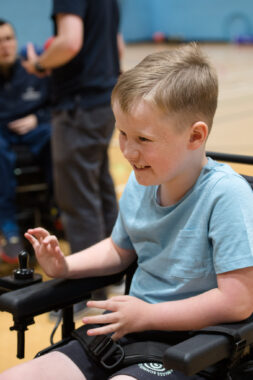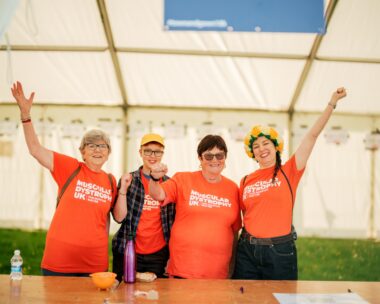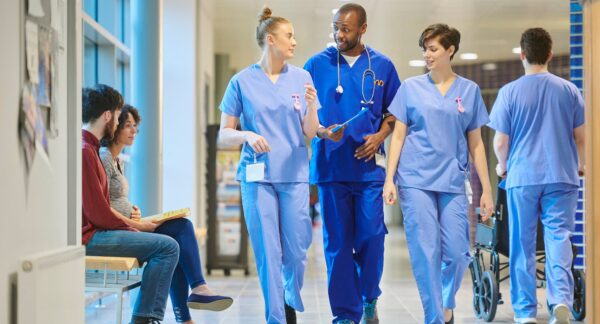Today (Wednesday 17 September), we’re delighted to launch our new ten-year strategy to transform the lives of people living with muscle wasting and weakening conditions.
Discover our bold new ten-year strategy
Our community has been at the heart of developing our new strategy. From those with lived experience, family members, healthcare professionals, researchers and fundraisers all playing an instrumental role in shaping it. You’ve been involved at every stage, from completing surveys, attending workshops, taking part in discussions at Muscle Groups and Information Days, along with sharing personal stories. So, a huge thank you for all your contributions.
A world without limits: our ten year strategy
Our vision for the next 10-years
Over the next decade, we’ll focus on four key strategic goals.
1. Transforming diagnosis – helping speed up and improve the accuracy of diagnosis.
2. No one faces their journey alone – reaching everyone with information and support at the point of their diagnosis and being there for them at every stage of the journey.
3. New treatments, universal support – helping accelerate the development of new treatments for every condition and quicker and easier access to specialist support when and where people need it.
4. Living your life to the full – campaigning for a more equal and accessible world and supporting more people to live independently with better physical and mental health.
To achieve these goals, we’ll strive to double our income by 2035 to £15 million, invest in our team of staff and volunteers, harness technology and improve the use and collection of data and increase awareness and understanding of muscle wasting conditions. Read our full strategy
A world without limits
Our Chief Executive, Andy Fletcher, said: “This strategy is our boldest yet — a ten-year ambition to transform the lives of people living with a muscle wasting condition. Our vision is clear, a world without limits for people with muscle wasting conditions, and we won’t stop until we achieve it. But we can’t do it alone. We need everyone including our supporters, healthcare professionals, scientists, policymakers to stand with us. The time for change is now.”
Professor Michael Hanna, Chair of Trustees, said: “Our ten year strategy marks an exciting new chapter for us. Built on the voices, experiences and aspirations of people living with muscle wasting conditions, it reflects our unwavering commitment to drive progress, improve lives, and ensure no one faces muscle wasting conditions alone. As Chair of Trustees, I am proud to stand behind a vision that is bold, inclusive, and focused on real impact. Together, we can drive real change.”
Join us
This is an ambitious strategy, and while we’re passionate about delivering it, we can’t do this alone. The transformation starts right here, right now. And you can be part of it.

Donate today and help change the future of muscle wasting conditions.

Join our incredible team of volunteers and experience the joy of making a difference.

Keep up to date with the latest news, campaigns, research and ways you can support us.


